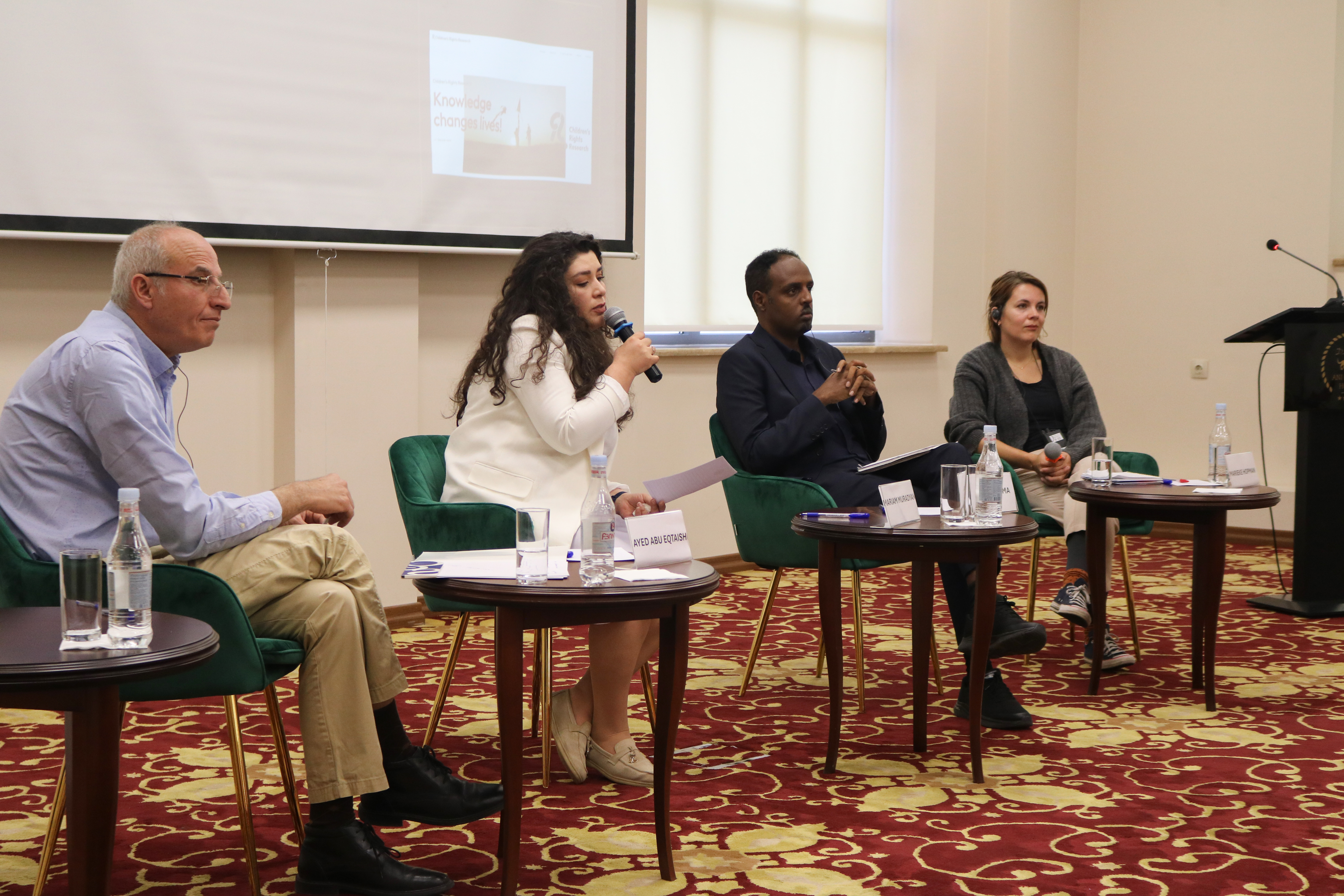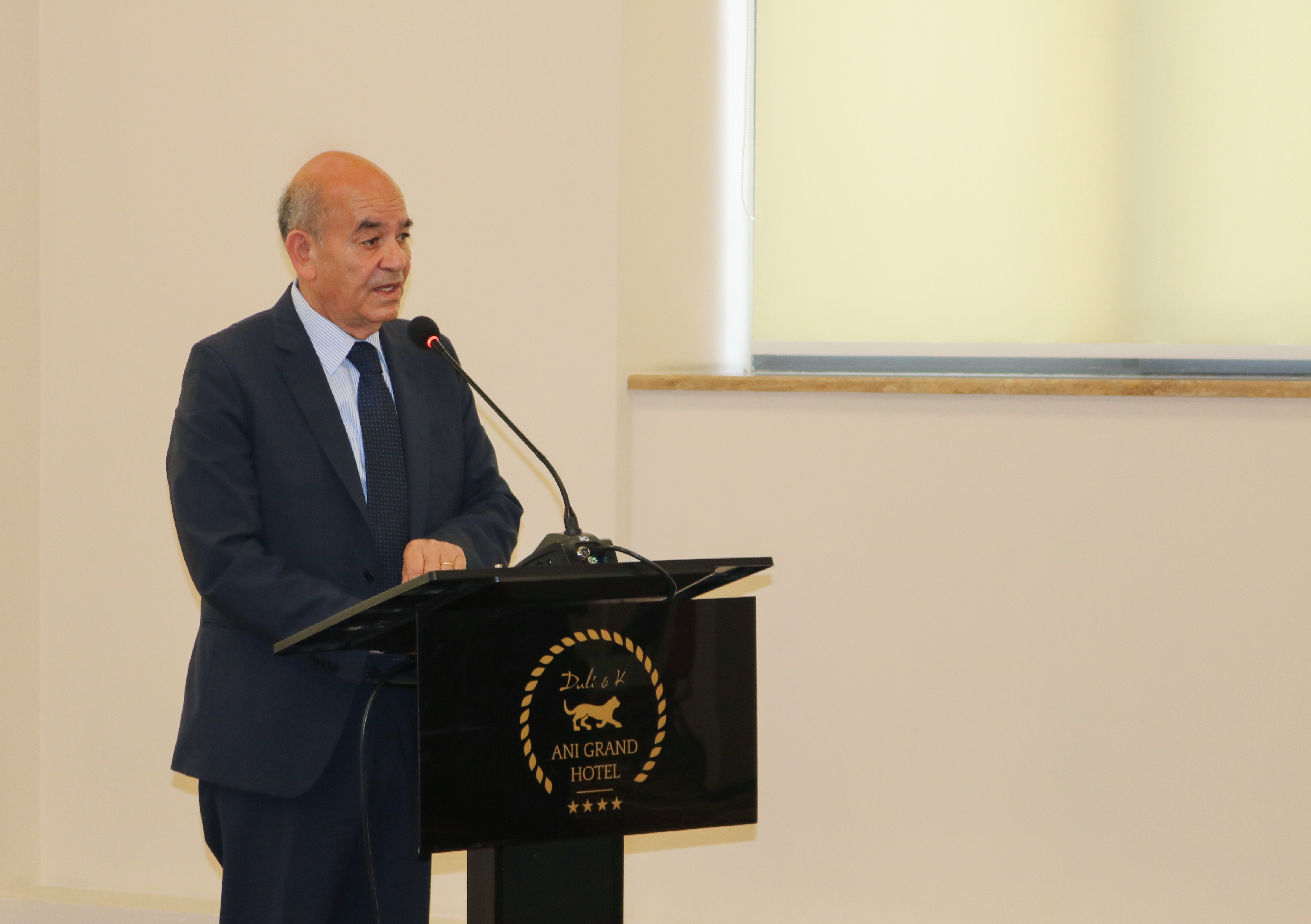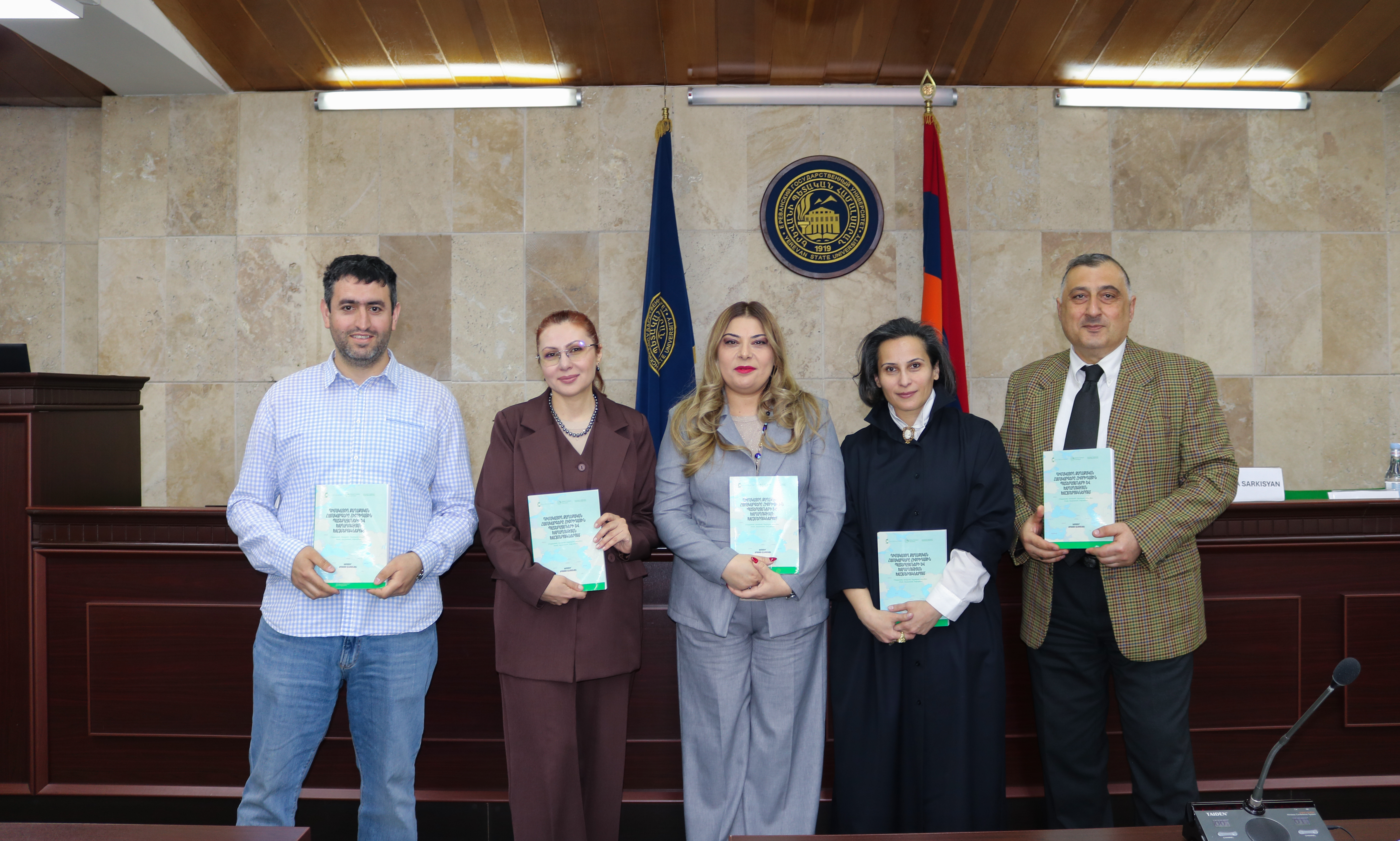April 18, 2025 | 12:12
Conferences
Research
YSU hosts international conference on wars, displacements, and human rights
As part of the cooperation between YSU Center for European Studies, the Global Campus of Human Rights, Maastricht University (Netherlands), and the Right Livelihood organization, Yerevan State University hosted an international conference focused on the protection of human rights in the context of wars, armed conflicts, and forced displacements.
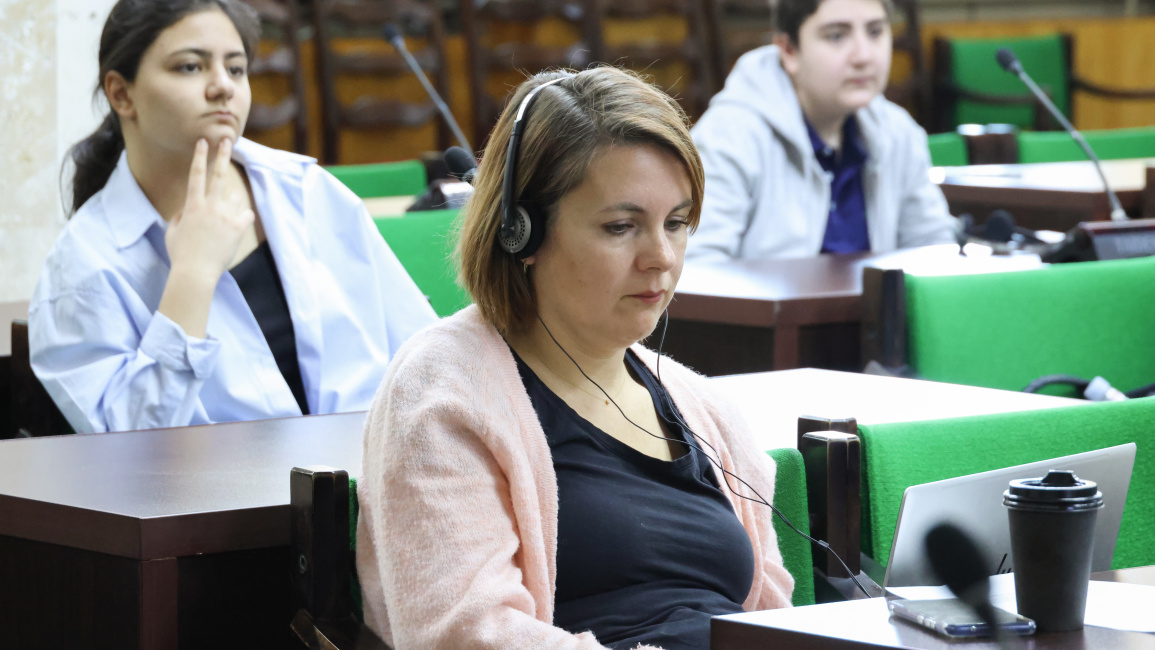
On the first day of the two-day conference, held on April 17, participants engaged in discussions at the Ani Grand Hotel. The second day of the conference continued at YSU Academic Council Session Hall. The conference served as a platform for academic and expert discussions on the practical application of international humanitarian law, state and civil society responses, and the development of innovative solutions to protect individuals in need of protection, especially children's dignity, security, and well-being.
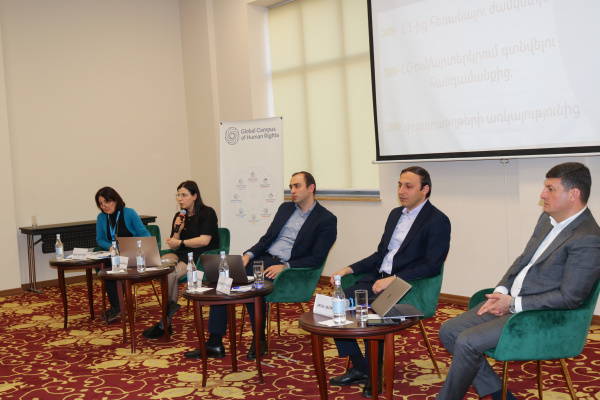
The discussions of the two-day conference focused on the following key themes:
Comparative analysis of the human rights situation in unrecognized states
Legal status, socio-economic rights, and governmental responses concerning displaced people from Nagorno-Karabakh
Children’s experiences and participation as witnesses to the consequences of displacement
Stability of political systems in the context of hybrid warfare
Cooperation and support between civil society and state institutions
Speakers at the conference included Raji Sourani, founder of the Palestinian Center for Human Rights and 2013 laureate of the Right Livelihood Award, as well as experts from YSU, Maastricht University, the UNHCR, the International Committee of the Red Cross, and other state and non-governmental organizations.
The conference began with an opening speech by Vladimir Martirosyan, Director of YSU Center for European Studies, who introduced the center’s activities and the rationale behind the choice of the conference theme. Raji Sourani, one of the keynote speakers, addressed the Palestinian crisis, international responses, and possible solutions. The first panel discussion followed, with experts from Maastricht University presenting the "Child-War" project, conducted in cooperation with the European Studies Center, aimed at studying children's rights in unrecognized states such as Gaza, Nagorno-Karabakh, and Somaliland.
Following the second panel discussion, the displaced participants from Artsakh, part of the Armenian Children’s Leadership Team, shared their stories, the difficulties they faced during the war and displacement, and discussed key issues regarding the protection of children’s rights.
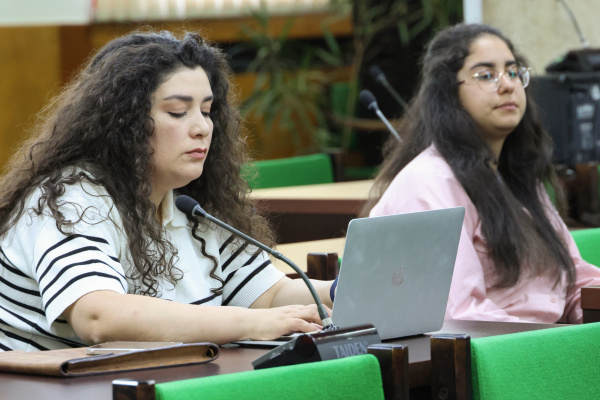
The conference also covered theoretical and practical issues, including international legal responsibility, the protection and social integration of displaced persons, the psychological needs of children, and the role of local and international partners in these processes.
The session at YSU began with an online speech by human rights defender and laureate of the Right Livelihood Award Oleksandra Matviichuk, who discussed the severe consequences of global wars, the impotence of international law, and the responsibility of individuals. In her speech, Matviichuk raised an important question: how can we, people of the 21st century, protect human life, freedom, and dignity?
Christine Gevorgyan, the coordinator of YSU European Studies Center's master's programs, presented the research work conducted by the center. She noted, " YSU European Studies Center is not only engaged in educational activities but also in active research. For several years now, in collaboration with the Global Campus of Human Rights, the center has been publishing scientific works on various topics. This time, we wish to present our latest research, 'Resilient Political Systems at The Crossroads of Hybrid Wars and Peace (Armenia, Georgia, Azerbaijan, Turkey, Iran, Russia and Ukraine),' which has already been published. This study is closely related to the main theme of our conference, and I am sure it will make a valuable contribution to the professional discussions."
According to her, conducting the research involved difficult and responsible phases, requiring persistence, dedication, and significant effort. This collective monograph is a comparative analysis of the political systems of the region’s countries, conducted using the methodology of the political system stability index. It specifically examines the trends and transformations in the political stability of Armenia, Georgia, Azerbaijan, Turkey, Iran, Russia, and Ukraine.
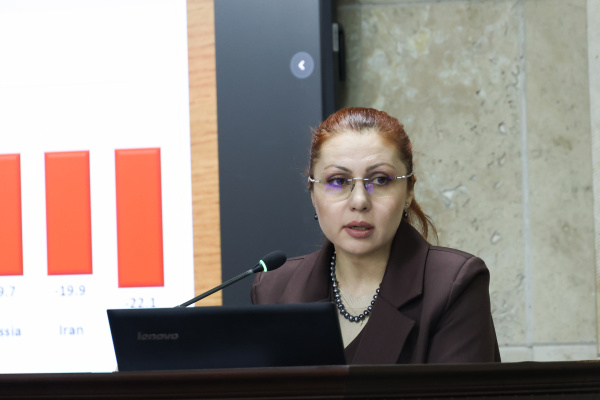
Arusyak Aleksanyan, Head of YSU European Studies Center's research division, scientific leader of the research team, editor, and co-author of the monograph, noted that the work includes both national and cross-national analyses. The national analysis covers a comprehensive study of the political, economic, and social factors of the region's countries' stability in the years 2000, 2021, and 2022. The cross-national analysis compares the political stability indices of these countries in 2022.
The conference featured thematic panel discussions, during which speakers analyzed and discussed current regional and global challenges, as well as human rights protection mechanisms.
In the closing phase of the conference, the main outcomes of the discussions were highlighted, and the process of developing innovative proposals was initiated. The closing phase was accompanied by a musical performance by the Artsakh Chamber Orchestra Quartet.
This conference made a significant contribution to strengthening the humanitarian and human rights protection agenda at both the regional and international levels. Its goal was to unite the academic community, policymakers, and civil society to develop joint solutions and give a voice to the displaced.
It is important to highlight that the conference was held with funding from the Global Campus of Human Rights and Right Livelihood.






